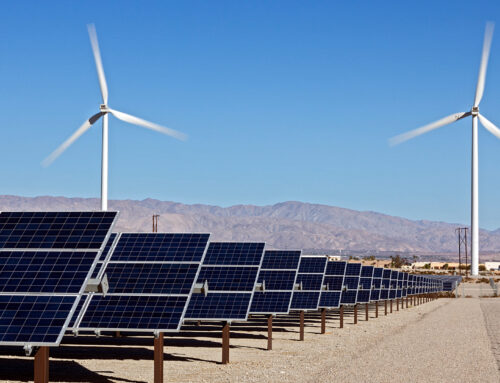China Investors Brace for ‘Ugly’ Monday on US Tariff Retaliation
April 6, 2025
(Bloomberg) — China investors are bracing for a grim Monday as the nation’s markets return from an extended weekend and factor in its retaliation to US tariffs.
Most Read from Bloomberg
-
This Skinny Mexico City Tower Is Just 14 Feet Wide on One Side
-
Boston Mayor Wu Embraces Trump Resistance as Campaign Heats Up
-
Metro-North Is Faster Than Acela on NYC-New Haven Route After Signal Updates
A gauge of Chinese stocks listed in the US plunged 8.9% on Friday, the most since October 2022, amid global market turmoil after Beijing announced 34% tariffs on all imports from the US. That came during a holiday for Chinese and Hong Kong equities, which will restart trading on Monday.
A fall of similar magnitude in the local shares could put multiple Chinese equity gauges — such as this year’s top major global performer, the Hang Seng China Enterprises Index — into a technical correction, and in some cases close to a bear market. That would end a nascent recovery in the country’s assets, unless mainland-based investors and bargain hunters step in to cap the slide.
Listen to the Here’s Why podcast on Apple, Spotify or anywhere you listen.
The quick retaliation by China, following US President Donald Trump unleashing the steepest increase in tariffs in a century last week, has raised the odds of a global recession. The heavy selloff in US-listed Chinese stocks also reflected fears of further tit-for-tat responses between the world’s top two economies.
“It will be an ugly start on Monday, which will be a buying opportunity for me,” said Xin-Yao Ng, a fund manager at Aberdeen Investments. “Some estimates suggest tariff wars can bring down China’s GDP growth by 2 percentage points, but the government will negate that pain with stimulus and trade deals with non-US countries in the due course.”
So far this year, Chinese stocks have shown resilience despite rising trade tensions. That’s been driven by optimism about the country’s advancements in artificial intelligence and bets that external pressure will prompt policymakers to increase economic support. The MSCI China Index has risen 13% year-to-date, compared to an almost 14% drop in the S&P 500 Index.
Goldman Sachs Group Inc. trimmed its 12-month targets for Chinese equity indexes in a report on Sunday. The MSCI China Index target was cut to 81 from 85, while the CSI 300 Index outlook was lowered to 4,500 from 4,700 over the same time frame, analysts including Kinger Lau said.
“The bull run will slow on event risks and profit-taking pressures,” the analysts said. “The market may test our risk-case valuations in the short term until trade and policy clarity emerges, and/or a new tariff equilibrium is reached.”
The yuan will also be in focus as analysts have long been saying Beijing may weaken the currency to boost exports and blunt the impact of higher US tariffs. The yuan slid to the weakest level since February in onshore trading following Trump’s tariff announcement.
China on Friday announced commensurate levies on all American goods and export controls on rare earths, prompting the US president to deride Beijing’s reaction as the “wrong” move. A Weibo account affiliated with state-run China Central Television later said the nation is ready to “fight till the end.”
On Saturday, the state-owned Xinhua News Agency reported Beijing will continue to take “resolute measures” to defend its economy and safeguard its sovereignty, security and other interests.
Meanwhile, traders have begun pricing in what increasingly looks like a negative-feedback loop. Trump showed little sign of backing down even as $5.4 trillion was wiped off the market value of the S&P 500 Index in two sessions — the worst meltdown since the pandemic hit the US in 2020.
China’s response also starkly contrasts with other Asian nations’ efforts to accommodate Trump’s demands rather than make counter moves. Vietnam, Cambodia and Indonesia have said in recent days that they’re open to negotiations, while Singapore said it didn’t plan to strike back. India is working toward a possible bilateral trade deal to dampen the blow.
China’s retaliation has led to “increased fears of recession and a big hit to profits,” Shane Oliver, chief economist at AMP Ltd., wrote in a note on Saturday. “This is taking us further into a trade war.”
–With assistance from Tian Chen.
(Updates with Goldman outlook from paragraph seven)
Most Read from Bloomberg Businessweek
-
With Shake Shack in First Class, Airline Food Is No Longer a Joke
-
China Tells Kids to Study Manufacturing to Fill Factory Jobs
-
LA Fire Victims Are Betting on a Radical Idea to Help Them Rebuild
©2025 Bloomberg L.P.
Terms and Privacy Policy
Search
RECENT PRESS RELEASES
Related Post


